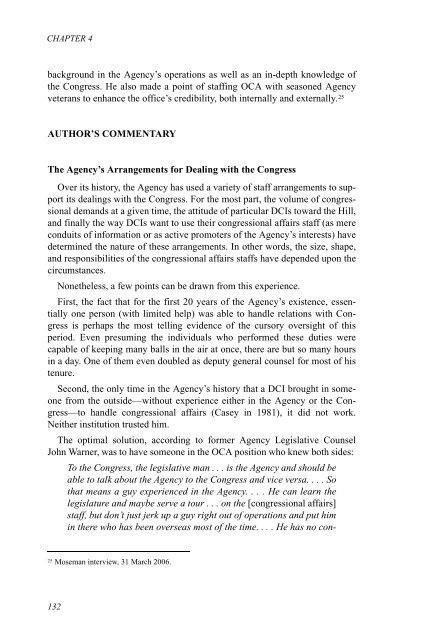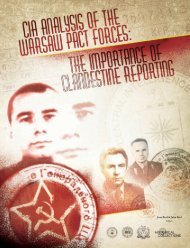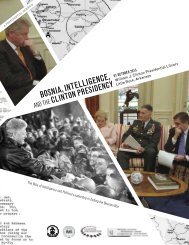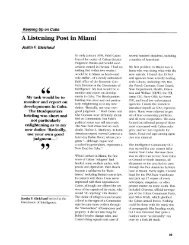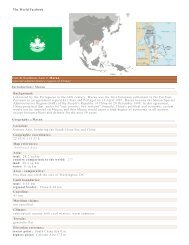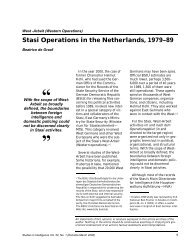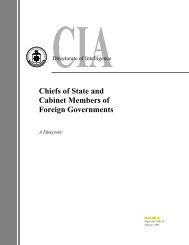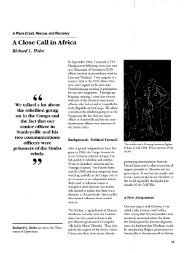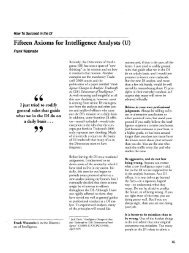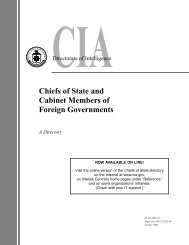CHAPTER 4 - Central Intelligence Agency
CHAPTER 4 - Central Intelligence Agency
CHAPTER 4 - Central Intelligence Agency
Create successful ePaper yourself
Turn your PDF publications into a flip-book with our unique Google optimized e-Paper software.
<strong>CHAPTER</strong> 4<br />
background in the <strong>Agency</strong>’s operations as well as an in-depth knowledge of<br />
the Congress. He also made a point of staffing OCA with seasoned <strong>Agency</strong><br />
veterans to enhance the office’s credibility, both internally and externally. 25<br />
AUTHOR’S COMMENTARY<br />
The <strong>Agency</strong>’s Arrangements for Dealing with the Congress<br />
Over its history, the <strong>Agency</strong> has used a variety of staff arrangements to support<br />
its dealings with the Congress. For the most part, the volume of congressional<br />
demands at a given time, the attitude of particular DCIs toward the Hill,<br />
and finally the way DCIs want to use their congressional affairs staff (as mere<br />
conduits of information or as active promoters of the <strong>Agency</strong>’s interests) have<br />
determined the nature of these arrangements. In other words, the size, shape,<br />
and responsibilities of the congressional affairs staffs have depended upon the<br />
circumstances.<br />
Nonetheless, a few points can be drawn from this experience.<br />
First, the fact that for the first 20 years of the <strong>Agency</strong>’s existence, essentially<br />
one person (with limited help) was able to handle relations with Congress<br />
is perhaps the most telling evidence of the cursory oversight of this<br />
period. Even presuming the individuals who performed these duties were<br />
capable of keeping many balls in the air at once, there are but so many hours<br />
in a day. One of them even doubled as deputy general counsel for most of his<br />
tenure.<br />
Second, the only time in the <strong>Agency</strong>’s history that a DCI brought in someone<br />
from the outside—without experience either in the <strong>Agency</strong> or the Congress—to<br />
handle congressional affairs (Casey in 1981), it did not work.<br />
Neither institution trusted him.<br />
The optimal solution, according to former <strong>Agency</strong> Legislative Counsel<br />
John Warner, was to have someone in the OCA position who knew both sides:<br />
To the Congress, the legislative man . . . is the <strong>Agency</strong> and should be<br />
able to talk about the <strong>Agency</strong> to the Congress and vice versa. . . . So<br />
that means a guy experienced in the <strong>Agency</strong>. . . . He can learn the<br />
legislature and maybe serve a tour . . . on the [congressional affairs]<br />
staff, but don’t just jerk up a guy right out of operations and put him<br />
in there who has been overseas most of the time. . . . He has no con-<br />
25<br />
Moseman interview, 31 March 2006.<br />
132


